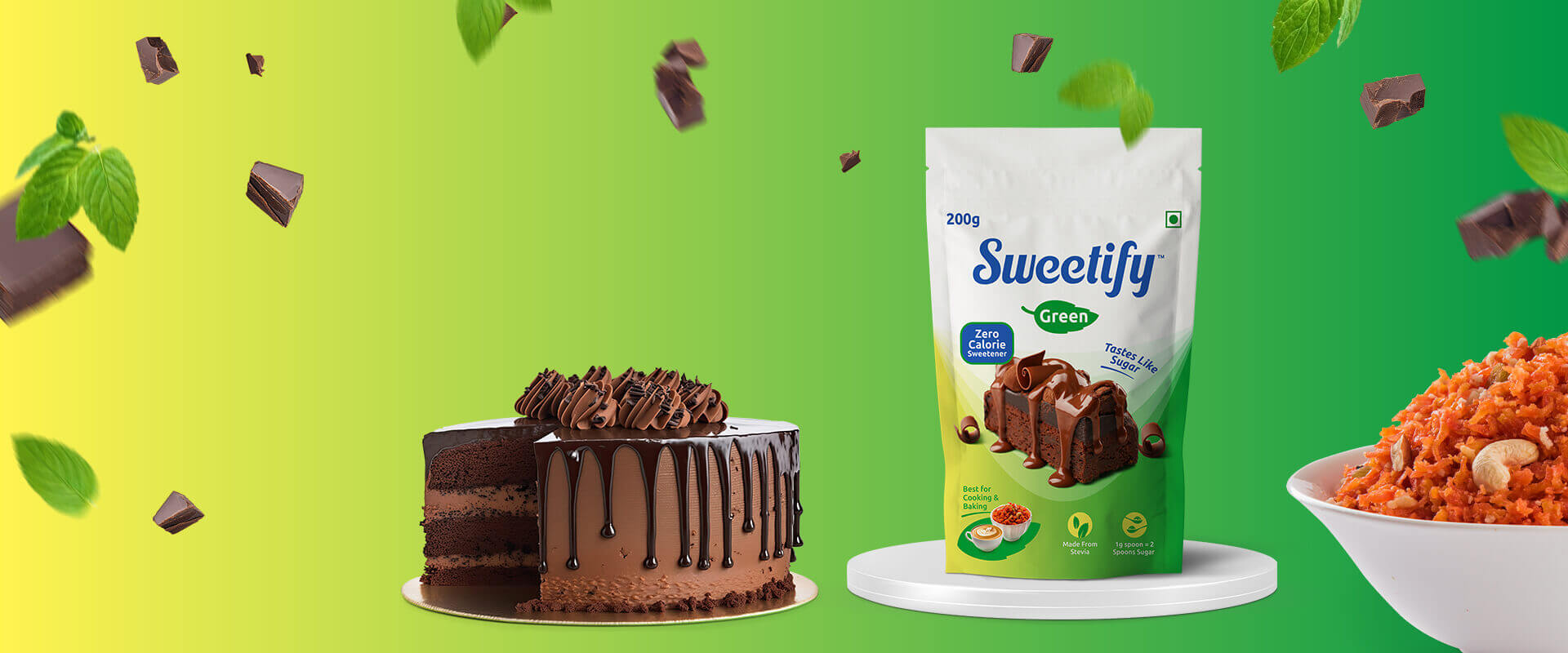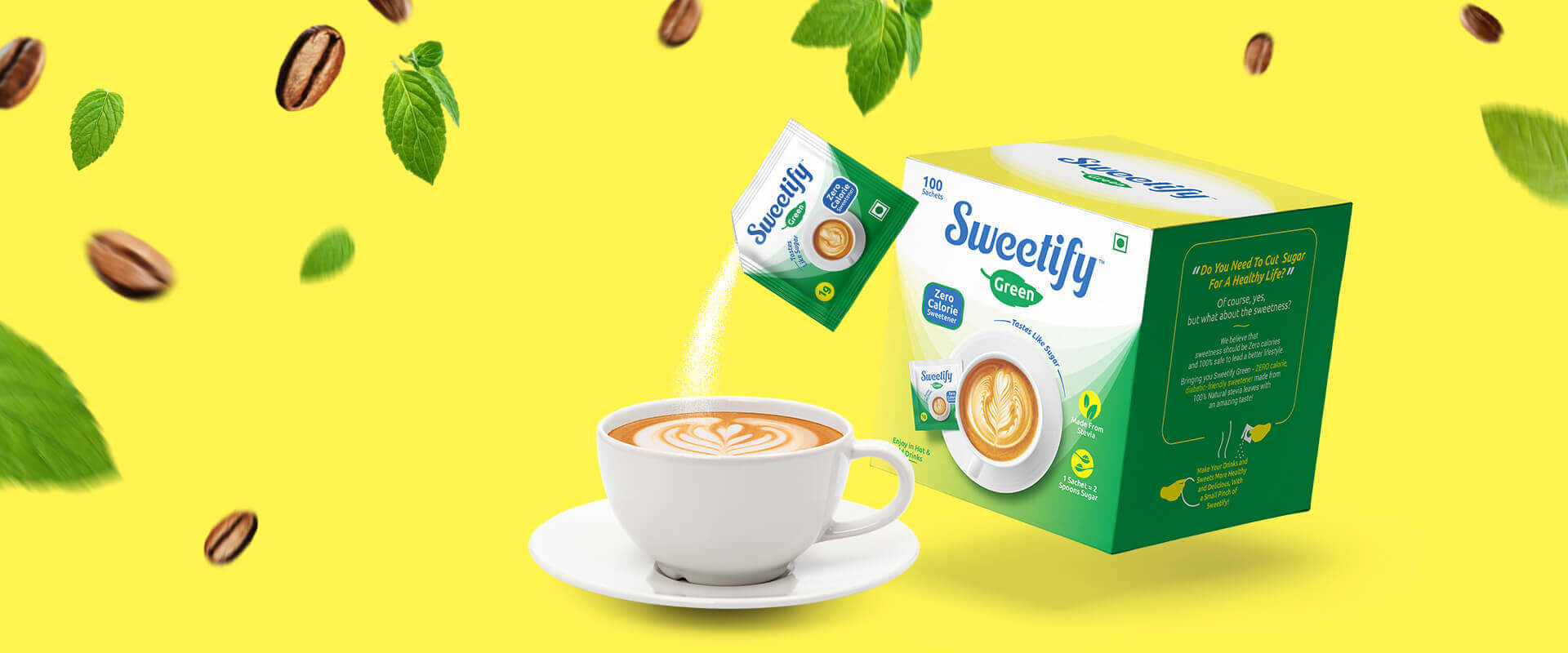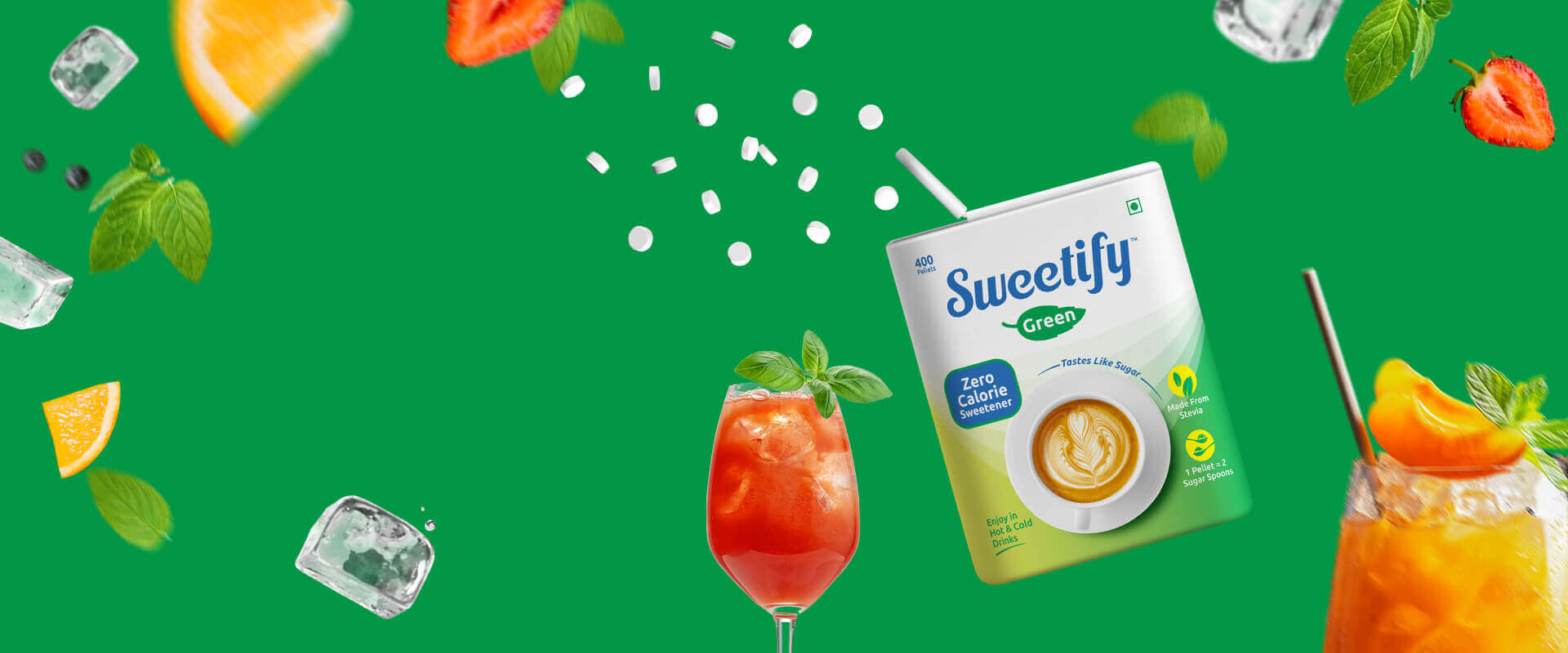Before we get into stevia and cancer, let’s first quickly recap what stevia is.
Stevia is a plant (also known as ‘meethi tulsi’ in India) from which stevia sweeteners are made. Stevia leaves are around 200 to 300 times sweeter than sugar and also carry a leafy bitter aftertaste. During the making of the stevia sweetener, the bitterness is removed and the sweetness is diluted to reach the same levels as that of sugar. After all of these processes, you are left with the stevia sweetener.
Having revised that again, let’s get to the meat of the topic.
Is stevia carcinogenic? Does stevia give you cancer?
Not really. All the studies done to date show that stevia linked to cancer is a myth. In fact, stevia is safe to consume, especially so for diabetics because it doesn’t spike insulin or raise blood sugar levels.
The thing is, you should consume high-purity stevia leaf extracts (minimum 95%) rather than crude stevia extracts or the leaves directly. Stevia comes in many forms, namely liquid, fine powder and granules. As such, it can be used in drinks and beverages, in baking and cooking and more. The only thing is stevia doesn’t caramelise like sugar and as such cannot be used in places where you need caramelised sugar.
The one important point is to remember not to over-consume the stevia powder. Even water in excess can cause harm and as such the stevia powder you consume should also be eaten in a balanced way. Replacing your sugar consumption with stevia and then reducing the amount of added sugar you consume are good places to start. Try to get most of your sugar from fruits and vegetables. And if you are consuming more, then have higher levels of physical activity.
Conclusion
Current research shows that stevia is safe to consume. Remember to do so in moderation. Anything in excess can harm your body. Balance and ease are the guardrails you need to safeguard your health. Unnecessary pressure from sugar or excess stevia consumption on your body in addition to the stress you have will only harm you further. In case you have a unique situation at hand or a special circumstance, please consult a doctor.
FAQs
-
What are the different forms of stevia?
Stevia rebaudiana is the plant and from it steviol glycosides are extracted to make the stevia-based sweetener. The sweetener comes in loose power, in sachets and in liquid drops. - Should I use stevia leaves or stevia extract?
High-purity stevia extracts are recommended. Crude extracts or whole leaves are not approved by most nations. - Where can I find more information about stevia?
You can read our other blogs and besides those, you can follow good doctors practising evidence-based medicine, read good research and follow nutritionists who talk about the science behind these things. -
When should I consult a doctor about stevia consumption?
When your situation is out of the ordinary. For example, during pregnancy, or some other gut-related issue, etcetera. -
Does stevia have an expiration date?
Stevia sweeteners do have expiration dates. Using them in 24 months or 2 years from manufacturing is best.





